BOOK DRIVE + SOFT LAUNCH @ BOOKWORKS
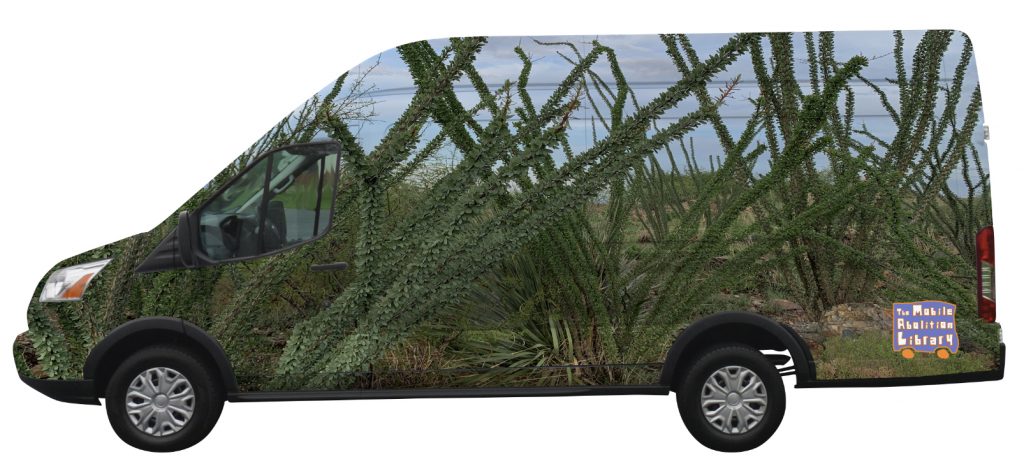

July 10, 6-7:30 pm
Poetry Reading by Mario Montoya (aka sol)
Bookworks
4022 Rio Grande Blvd NW
Albuquerque, NM 87107
The Mobile Abolition Library is a collaboration between sheri crider and Bernadine Hernández and Martín Wannam, members of FRONTERISTXS Collective in Albuquerque, New Mexico. The library was designed, built and organized by sheri crider in conjunction with her Art For Justice Fellowship. The project leverages multiple artist and community collaborations to create this ambitious project. Delilah Montoya, John-Mark Collins, A Good Sign, ACLUNM. In addition to these incredible partners, BOOKWORKS has been essential in hosting the book drive for the library.
The Mobile Abolition Library is an initiative pushing against one-dimensional narratives of crime and punishment. The library holds over 300 books, a rotating collection of abolition centered zines, regional abolitionist seed for distribution a digital portrait archive of incarcerated narratives. The project underscores the importance of re-imagining public spaces as living, dynamic spaces that can amplify marginalized voices while supporting complicated conversations to envision a more equitable future. The Mobile Abolition Library is an initiative pushing against one-dimensional narratives of crimes and punishment. The mobile library is a three hundred book library, collection of abolition centered zines, an abolition seed library, a digital portrait archive of incarcerated narratives and collection site for creating an immigration archive. The project underscores the importance of re-imagining public spaces as living, dynamic spaces that can amplify marginalized voices while supporting complicated conversations to envision a more equitable future.
DONATE BOOKS TO THE LIBRARY HERE


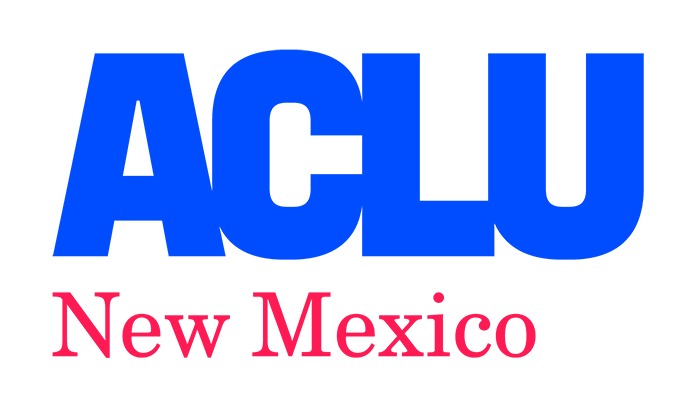
You’ve Made This House Your Home
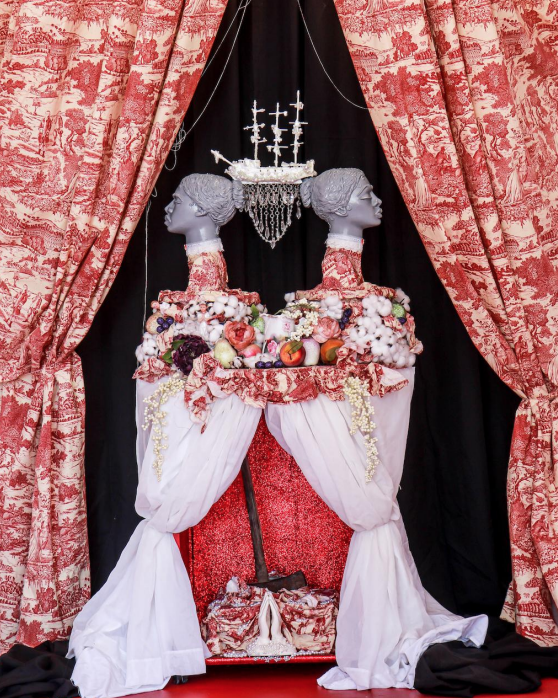
Lizz Denneau
June 7 – July 12, 2024
Opening Reception: June 7, 5-8pm
Sanitary Tortilla Factory is pleased to announce Lizz Denneau’s first solo exhibition in New Mexico. You’ve Made This House Your Home, is an evolving tableau exploring the nuanced intersections of respectability politics, White Supremacy, and capitalism. Inspired by W.E.B. Du Bois’ seminal essay ‘The Talented Tenth’ and fortified by hidden American narratives such as the story of Mary & Emily Edmonson, also known as The Pearl Incident, this installation delves into the depths of these societal dynamics.
Here, the metaphor of a house serves as a potent symbol for the structures that govern our lives, often without scrutiny of their origins. Borrowing from the real estate lexicon, I explore the concept of ‘bad bones,’ extending it to encompass the enduring societal frameworks inherited across generations and adapted to our present realities.
Within these walls, ornate assemblages and objects bear witness to the weight of perfection and respectability imposed on marginalized communities. Each installation is a living archive, retaining fragments of past iterations, thereby weaving a narrative tapestry of collective history.
Drawing on insights from scholars like E. Franklin Frazier, Sabrina Strings, and the literature of Margot Jefferson, the exhibition invites reflection on the dual role of these constructs in both advancing and dismantling communities. I invite you to join me on this journey of exploration and introspection as we navigate the complex terrain of societal structures and their impact on our shared humanity.
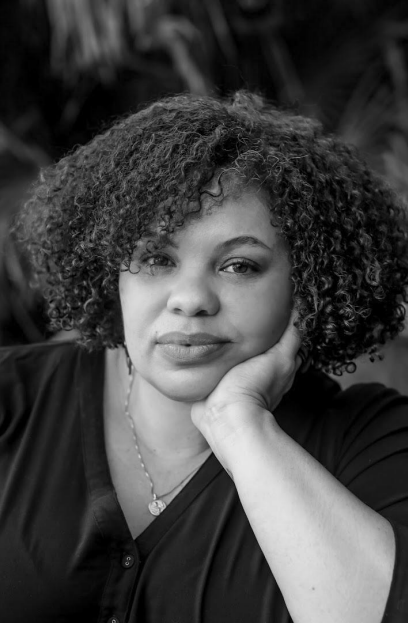
BIO: Elizabeth Denneau is an artist, writer, and art educator residing in the Sonoran Southwest. She obtained her teaching certificate and BFA in Art and Visual Culture Education through the University of Arizona and her MFA from the School of the Art Institute of Chicago. She is a member of the Art21 Educators Institute and currently teaches contemporary art and culture at Tucson High Magnet School while working with local community organizers and colleges to develop practical models of social justice in art education. In her personal artistic practice, she is continually influenced by narratives of human perseverance, vulnerability, and power dynamics. She writes about her experiences being a Black educator and her upbringing in a place where Black people represent less than 3% of the population. She is the co-founder of the Southwest Black Artists Collective and The Projects – art space. Both organizations serve a mission to bring visibility and support to Black creatives in the Southwest region.
Who Says You Can’t Go Home
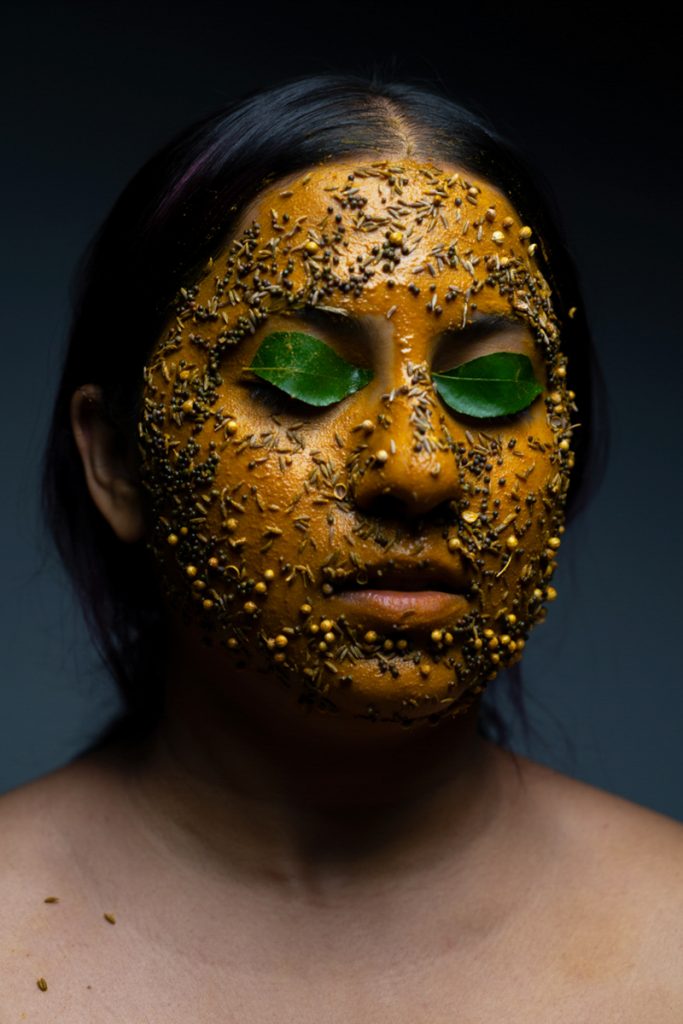
Yashoda Latkar
Exhibition: May 3 – 31, 2024
Opening Reception: Friday, May 3, 5-8 pm.
A Migrant’s Table Performance: Friday, May 3, 6pm
Sanitary Tortilla Factory is pleased to present Who Says You Can’t Go Home, an exhibition of new works by New Mexico State University’s College of Fine Art MFA Candidate and Sanitary Tortilla Factory’s 2024 Exceptional Visual Artist Scholar Yashoda Latkar. The exhibition, “Who Says You Can’t Go Home,” is a deeply personal and introspective journey into the complex interplay between migration, identity, and the quest for home. Through a diverse range of mediums, including photography, video, ceramics, and installation art, this body of work explores the notion of ‘home’ as both a tangible space and a psychological construct. Drawing upon her own experiences as an immigrant from Mumbai, India, to the United States, the exhibition delves into the persistent search for ‘home’ and the ever-evolving sense of Belonging.
The central theme of this exhibition revolves around the concept of ‘home’ and how it evolves through the process of migration and cultural displacement. As individuals, we often carry with us a deep-rooted connection to our places of origin. The exhibition investigates the multifaceted nature of ‘home,’ shifting from a physical space of shelter to a contested and ambivalent site in the face of displacement. Latkar’s creations in “Who Says You Can’t Go Home” are focused on the experience of living in an in-between space, belonging ‘nowhere,’ embracing the ambivalence even though the sense of being rooted, notions of a permanent home, and traditional routines are challenged.
Yashoda Latkar is the recipient of Sanitary Tortilla Factory’s 2024 Exceptional Visual Artist Scholar (EVAS) award. The EVAS series offers professional space for Master of Fine Art graduate students per year as their final thesis show. The culminating exhibition launches them into their profession as an artist. With the series, we underscore exceptional artists attending regional institutions while highlighting Albuquerque’s innovative connection to contemporary art practices.
Born and brought up in Mumbai, India, Latkar spent most of her life there and deeply identified with her home city, its bustling life, the vibrant street food culture, and the rich smells of spices. However, moving to New Mexico challenged every aspect of her identity. Nothing felt familiar, and suddenly, she found herself belonging nowhere. Her artistic narrative is rooted in this profound transformation, navigating between ‘there’ and ‘here,’ and building a new sense of self in a foreign land. As a migrant, the search for home is ongoing because one is constantly trying to make sense of their surrounding place. Latkar’s work is a mediation of these exact conscious efforts to belong and the desire to locate.
Opening night performance ‘A Migrant’s Table’ by Yashoda Latkar
In my creative practice, I explore the relationship between migration and identity, and my
constant search for home persists throughout my different bodies of work. I engage in the
fundamental question of where and what home is. In my work, I renegotiate the boundaries and
borders of ‘home’ by using self-portraitures, photographs of my family members and family
home, mixed media spiced-infused installations, and performative videos. My creations are
focused on the experience of living in an in-between space, belonging ‘nowhere,’ and embracing
the ambivalence even though the sense of being rooted, notions of a permanent home, and
traditional routines are challenged.
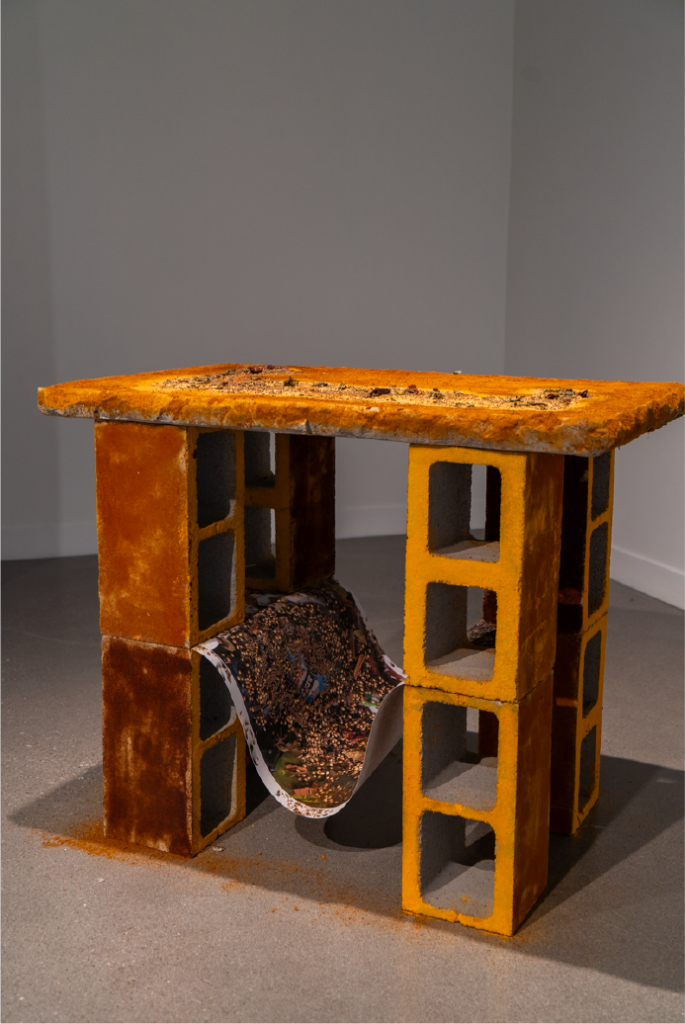
In my work “A Migrant’s Table” I create an installation using cinderblocks covered with
ground spices. Each side of the cinderblock is immersed in ground turmeric, cumin-coriander
seeds powder, and a special kind of mix of spices local to my community in India. The
cinderblocks are arranged in a shape of a table. As one enters the installation space, it is difficult
to escape the strong smell of spices. The aroma takes me back to my home in India, where it is
difficult to get away from the cooking smells. The walls of houses, the clothes, and even the
pores of one’s skin seep this smell.
As an immigrant, my sense of being and belonging are pulled in multiple directions
resulting in a state of flux. I (re)construct the fragments of my identity by using food,
predominantly spices in various forms. I move beyond the discussion of taste and investigate the
idea of experiencing food through multiple senses. My work includes multi-sensory cues of
visuals, sounds, textures, and smells that create a familiar home environment. Food, then,
transcends time and space.
@Work
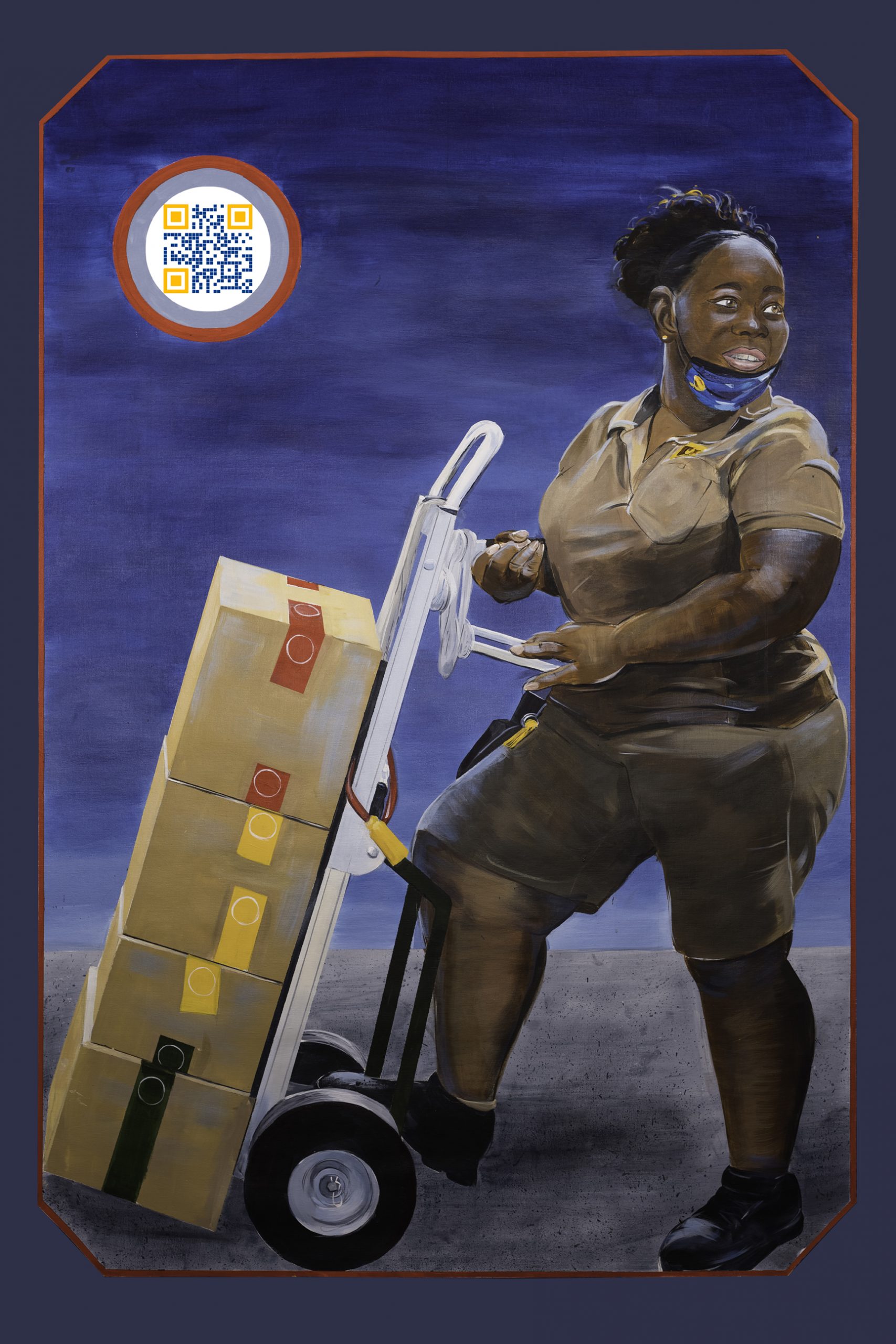
Zoe Beloff and Eric Muzzy
Presented by Basement Films
Exhibition: April 21 – 27, 2024
Opening Reception: Sunday, April 21 5-8pm
Artist Talk: Wednesday, April 24, 11:30-1pm during Experiments in Cinema v19.8
Sanitary Tortilla Factory and Basement Films is pleased to present @WORK, a documentary public art project by Zoe Beloff and Eric Muzzy that was created to celebrate the working people of New York. The project gives workers a platform to share their thoughts about their work, their world and their dreams for the future. The project takes on multiple forms of portraiture. From the start Zoe and Eric saw themselves as facilitators. Their first step was to interview each worker. They began the conversation with the words, “we are here for you…”. Subsequently they build the interviews into short films both serious and playful that situates the subject in place and time. Each worker was invited to choose a song that energized them. This exhibition is presented as part of Experiments in Cinema v19.8, Basement Film’s annual international experimental film festival.
The project includes fourteen life size portrait banners. QR codes link the banners to the films. The final part of the project was a large-scale wall mural and installation at the Electrical Workers Training Center (IBEW Local #3) in New York City.
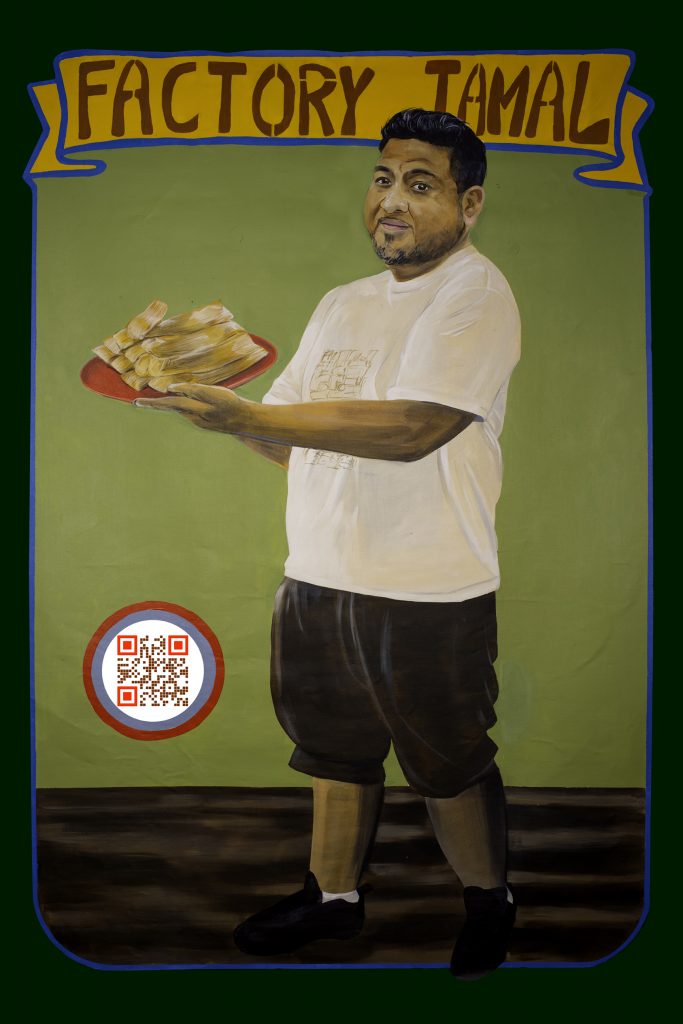
During the process of interviewing an incredibly diverse group of workers they learned a lot. For one thing if it were not for the contribution of immigrant women, the city would rapidly grind to a halt. This work is inspired by photographs of workers by Walker Evans and Alan Sekula, painted murals by Ben Shahn and the vernacular style of fairground banners. At the same time, they wanted to take these inspirations into the twenty-first century. They hope these images will travel far and inspire new oral histories.
Artists bios
Zoe Beloff is a visual artist and filmmaker. With a focus on social justice, she draws timelines between past and present to imagine a more egalitarian future. Zoe’s work has been featured in international exhibitions and screenings including the Whitney Museum, Site Santa Fe, the Akademie der Künste in Berlin and the Pompidou Center in Paris. However, she particularly enjoys working in alternative venues that are free and open to the community. She is a Professor at Queens College.
@zoebeloff
Eric Muzzy studied documentary filmmaking at Temple University though he started his young professional life peripatetically in a series of pursuits including factory worker, cabinet maker, house builder, deckhand and cameraman. He has worked in the film industry as well as acting as director of photography on independent films. He regularly collaborates with two New York artists, Zoe Beloff and composer and singer Shelley Hirsch. He is also engaged in still photography.
@ecplenair
Experiments in Cinema is an annual production of Albuquerque non-profit Basement Films. The annual festival festival, now in its 19th year, showcases artist films from around the world in a week-long festival in April. More at www.experimentsincinema.org
Experiments in Cinema v19.8 is made possible by support from New Mexico Arts, the National Endowment for the Arts, New Mexico Humanities Council, the National Endowment for the Humanities, Central New Mexico Community College, The Albuquerque Film Office. @Work was created with support from New York State Council on the Arts, New York City Artist Corp, Lower Manhattan Cultural Council, Social Practice CUNY and The Center for the Humanities at the CUNY Graduate Center.
Printed Matter
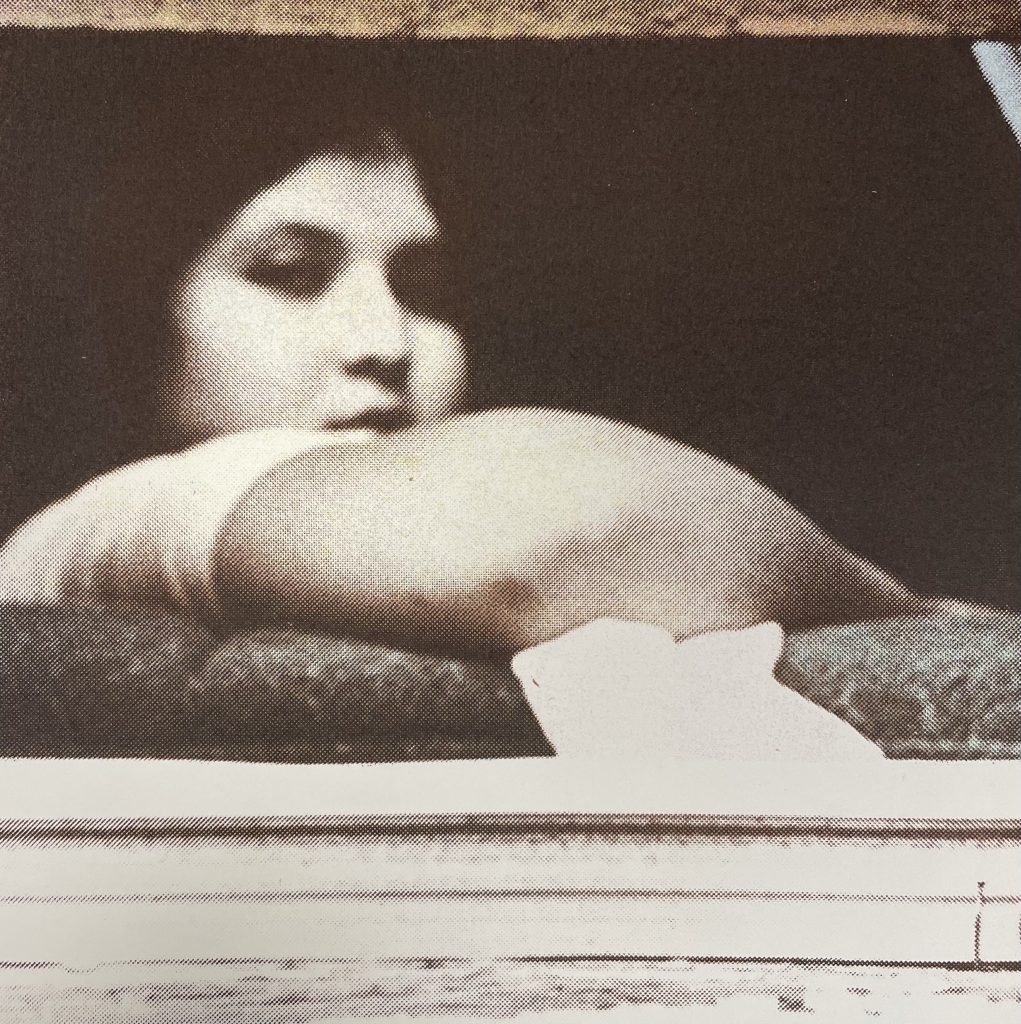
Printed Matter
Delano Garcia, Diego Garcia, Isabel Hees, Malcolm King, Jesse Littlebird, Delilah Montoya, Henry Morales, The Mobile Abolition Library
Exhibition: March 8 – 29, 2024
Opening Reception: Friday, March 8, 5-8 pm. Live printing throughout the evening.
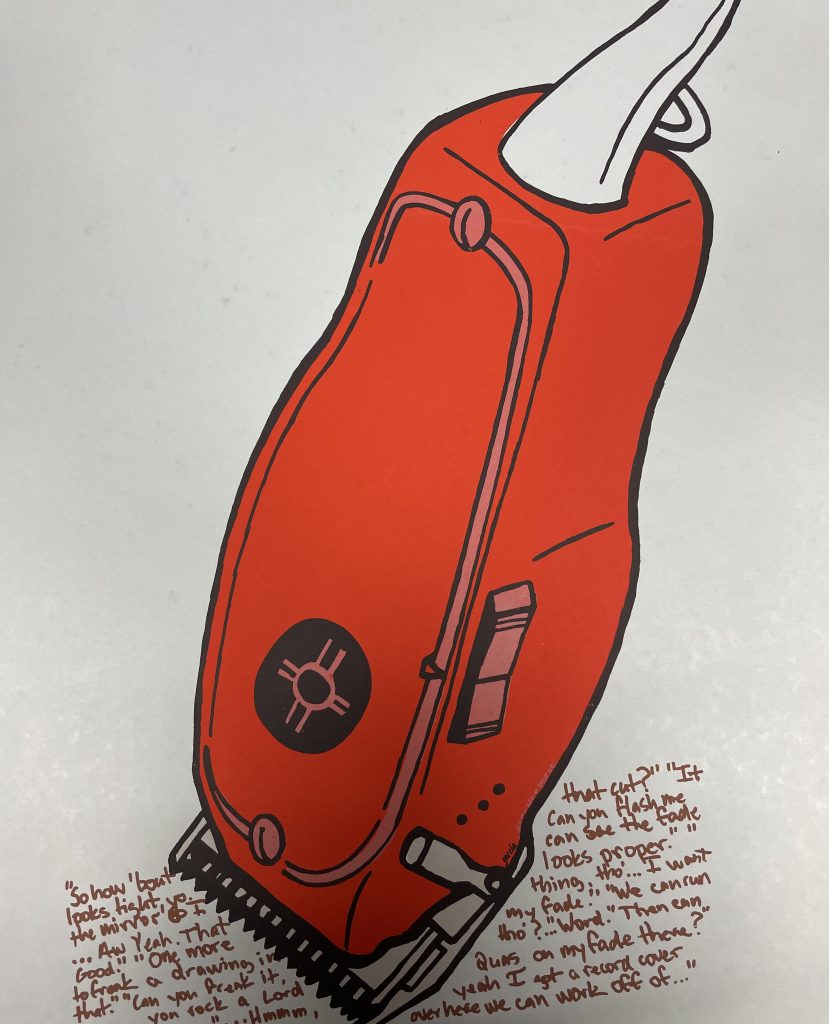
Sanitary Tortilla Factory is pleased to present Printed Matter, a group exhibition organized by Diego Garcia. Showcasing the diverse talents of artists shaping the creative landscape of Albuquerque, this collection of prints delve into the rich world of print media. From traditional printmaking like screen printing, silkscreen, and serigraphs to non-traditional print techniques, Printed Matter offers an exploration of the myriad mediums utilized by today’s artists. Join us for the opening reception, where throughout the evening live printing will infuse the space.
Image left: Diego Garcia, The Aces detail, silkscreen poster series
